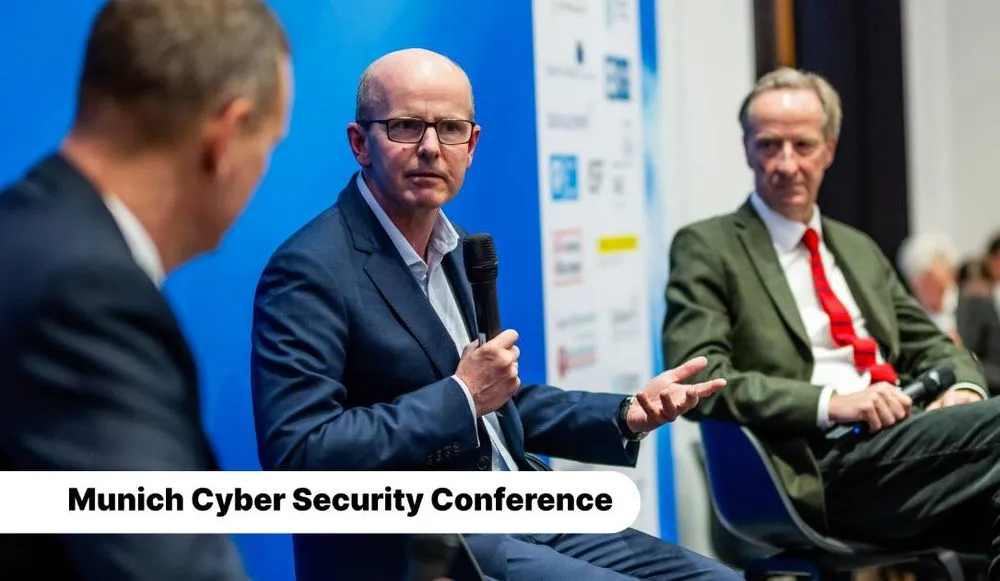British former spy chiefs say UK intelligence structure needs a shakeup
MUNICH, GERMANY — The former heads of two of the United Kingdom’s intelligence agencies said Thursday they do not believe the traditional divisions of the country’s security services — domestic, foreign, and signals intelligence — make much sense in the modern era.
Speaking at the Munich Cyber Security Conference on Thursday, Sir Jeremy Fleming (formerly of GCHQ) and Sir Alex Younger (formerly of MI6) said they overcame these limitations while in office by focusing on integrating their capabilities rather than fighting for territory.
The differentiation between domestic and foreign threats was no longer at all useful, Fleming said, “unless you’re talking about the U.S. Constitution, and it probably doesn’t work there either.”
“Intelligence agencies shouldn’t be organized around their traditional structures, they need to be organized against the threats they’re countering and the safety of the populations they serve,” the former GCHQ chief said.
Their comments come in the context of discussions about how the British government collects and uses data for a range of security purposes, including assessing traditional threats, as well as newer concerns, such as threats to the healthcare sector.
“If you were setting up the intelligence services in 2024 and not 1945, you would do it differently,” Younger said during the panel, which was moderated by Recorded Future CEO Christopher Ahlberg (The Record is an editorially independent unit of Recorded Future). “I think it’s important not to fetishize our organizational boundaries. What was incumbent on us as public servants was that we were prepared to organize our distinct capabilities in combination against the things that matter most to our nation.”
He argued that Britain, as a result of its smaller size and having faced a persistent terrorism threat for many years, was “the most advanced intelligence community in the world when it comes to integrating our capabilities.”
Noting that the face of the agencies was changing, Fleming said: “In the early 1990s, when both of us joined our agencies, if you lined up members of each of the agencies — one from MI5, the internal investigative service, one from MI6, the foreign human intelligence service, and one from GCHQ, the signals intelligence service — you probably would have had a good chance of guessing who was working for which. I reckon if you did that now, you wouldn’t.”
READ MORE: Munich Cyber Security Conference 2024 Live Updates
Alexander Martin
is the UK Editor for Recorded Future News. He was previously a technology reporter for Sky News and a fellow at the European Cyber Conflict Research Initiative, now Virtual Routes. He can be reached securely using Signal on: AlexanderMartin.79



